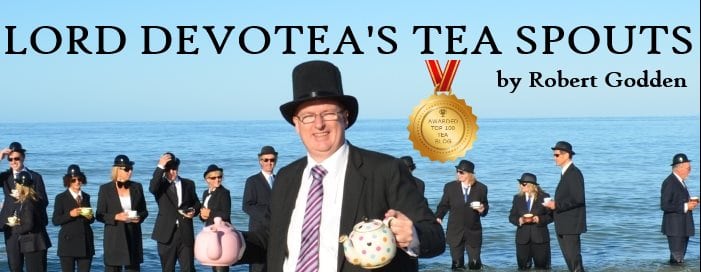Let me handle your first objection, dear reader.
I have heard that tea smugglers of the 1700s are no different to drug smugglers today; and if that is your opinion, dear reader, then you are entitled to it; as completely wrong as it is.
Tea was not illegal; merely highly taxed. Smuggling tea was not a way of gaining otherwise-unavailable products; it was tax avoidance. The duty on tea varied up to, depending on your sources, about 120 per cent.
The cheapest teas therefore attracted the least tax, so legitimate channels often bought in poor tea. Once tea was bought into England; it was often adulterated with all manner of stuff; mainly botanical but including sheep dung, to bulk it out.
Smuggled tea was often of a better quality.
Admittedly, this was not a Robin Hood scenario.
The customers of the smugglers were not the dirt-poor; they were the people who could afford a little cheap luxury.
The smugglers themselves were not the poorest of the poor; you needed friends, organisation and resources. You needed to either be capable of bribing customs officers or in quite a few cases, be a Customs Officer.
What’s that? Your second objection is that these people were avoiding a legitimate and legal tax; and we can’t all go around avoiding tax, or else roads would not be built and public hospitals would have no doctors; and government ministers would not be able to go on study trips to France with their hard-working assistants.
I’m willing to accept that argument; dear reader, from anyone who can demonstrate that the last time they overstayed on a parking meter without being fined, they sent the balance of what they should have paid to the local authorities.
Now, as I write this, you should know I am in England’s tea smuggling heartland. I have journeyed from Brighton in Sussex through Poole, Dorset and am in Plymouth, Devon.
At Poole; I discovered not one, but two shameful travesties.
One is that the guide books refer to the infamous break-in at the customs house “about 250 years ago” – close enough it might seem – where “rum, brandy and tea” were stolen. I would have put them in the reverse order, seeing as they removed all the tea and just whatever spirits they could fit in afterwards.
We went into the customs house – now a bar and restaurant – and ordered a pot of tea. What did we get? Filthy, stinking teabag tea at this historic site.
Or is it? I noticed in the information on the website that the building dated back to 1813; and it was a rebuild of the customs house from its original build in 1755.
“Hang on”, I said to Lady Devotea. “What’s this 1755 nonsense? The guys who broke in were hung in 1748, from memory.”
A quick check with Mr Google confirmed the break-in had been in 1747.
So, they are claiming the history at best inaccurately; then tainting the memory by serving Tetley tea bags.
All that aside; should we celebrate the memory of the tea smugglers? Aside from the fact that their constant irritation of the British Government led to a change in the tax system that led directly to the events in Boston Harbour in 1773 – and we can forgive them that.
Many of them were not nice people. They stole, they murdered, they cheated, they plundered. An in accepting this, we must also agree that some of them – maybe just a small percentage – were people whose only crime was smuggling tea – and that they were punished by death for that crime. And of course some died at sea, or in the course of being robbed for their tea.
And so, I ask the owner of (probably) every hotel along England’s South Coast – where is your pride? Men died so you could have tea; and you take their memories, wrap them in the cheapest paper and dunk them in hot water.
Shame on you.

And a lot of the tea imported in Europe was re smuggled to England.
People became rich in a lot of countries thanks to these taxes.
Yeah, no taxes if it was exported again. So it arrived in the UK, exported to the Netherlands/Belgium/etc and smuggled back to the UK.
Tax evasion still occurs. I know a Dutch company with factories in Polen. The products are shipped to China first before it comes to the Netherlands. It is cheaper due to taxes.
By the way there have been some half-hearted attempts to make tea illegal because it was considered a dangerous drug by some. But that was before the smuggling.
Your next project…to write about space tea smugglers. “Tea Kessel Run”!
Cool idea.